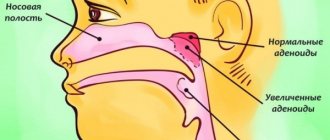You can often see an indignant mother on the street spanking her bawling baby on the butt. This common method of education is firmly rooted in our society and is considered a necessary measure of influence on a disobedient child. Is it possible to hit a child on the bottom, and what do psychologists say about this?
Key parenting styles
The history of human development identifies three main parenting styles that parents use:
- Authoritarian. In this case, the baby is subject to total control and obedience. He must comply with all the requirements of the parent, otherwise he will be punished. You quickly get used to this style.
- The democratic style is characterized by the fact that the child in such a family is given the right to his own position. The goal of this style is to form a harmoniously developed personality; parents put a lot of effort and time into this.
- The mixed method includes both rewards and punishments. It combines several educational styles, which does not always lead to a positive result.
The main reasons for physical punishment of children
Most modern mothers and fathers, when punishing their children, believe that this is their parental duty. But there are several key reasons for this:
- Heredity. In most cases, parents take out their anger on the child based on their childhood and past. They no longer imagine that they can be raised differently.
- Lack of awareness of parents in educational processes. This means that the punishment is carried out because the parents do not know other methods.
- A quick way to solve the problem. There is no need to spend a lot of time on explanations and teachings; it is easier to strike rather than resolve the issue verbally.
- Breakdowns due to your own failures. Very often, children are hostages of parental failures. Uncertainty about the future, interpersonal conflicts, internal experiences - all this can affect the child.
Results
Let's figure out why parents resort to violence against their children? Do they have the right to do this? Theoretically, they do: the baby is completely at the mercy of the adults. The dependent position gives parents the right to go too far for educational purposes at any time. However, this is simply an excuse for their pedagogical failure: mothers do not want to waste energy convincing their baby. The simplest and easiest way is to hit the butt with a swing.
The educational process is never smooth and takes a lot of mental energy from adults. However, it is important to demonstrate patience and understanding towards the little person. Why can't you hit children? Physical impact:
- harms health;
- cripples the psyche;
- provokes retaliatory aggression;
- creates a feeling of embitterment.
Many kids withdraw into themselves and try to distance themselves from the endless stream of criticism. Over time, you may end up with an uncontrollable teenager who is angry and violent. It is better not to use physical force for educational reasons.
Why don't children listen?
We all know that there are no ideal and obedient children. In psychology, there are several reasons for children's disobedience:
- diffidence;
- gaps in education;
- a way to attract attention;
- desire for contradictions;
- a way to assert oneself;
- There are a lot of demands on the child.
Most children's whims and cases of disobedience are due to the fact that the child grows up, feels like an independent unit, and parents still think that he is still a baby. The baby does not obey if mom and dad do not pay attention to him. This is a very effective method. If you don’t devote enough time to your child, then he may become offended, and then he may do everything not as you want, but as he sees fit.
Your heir may feel insecure if his parents become irritable and often tug at their clothes. The lack of a system in raising children is observed when a large number of people take part in this process - father and mother, grandparents, uncles and aunts. Each teacher has his own method; it may differ from the methods of other family members. For some, the behavior of the baby is the norm, for others it is unacceptable, and then the baby does not know how to behave correctly.
Parents who use an authoritarian parenting style have many demands on their child, sometimes inappropriate for their development and age. They put their opinion above all else, but the child’s opinion is not taken into account, they are only demanded from him. If he does not follow the instructions, then he is punished. It is very difficult for a child to develop in such an environment.
Is it possible to spank a one-year-old baby?
A child who is 1 year old very rarely sits still quietly. It is typical for him to explore everything around, and for this he uses not only his hands, but also his tongue. Only in such a combination can a complete picture of the world be compiled. The sofa turns out to be rough and tasteless, daddy’s cheeks can be painfully pricked, the cat is very warm and smooth - this is roughly how a baby learns about his surroundings.
Very often you can see parents who spank their child not only on the butt, but also on the arms. This cannot be done, psychologists unanimously came to this conclusion. A blow to the hands destroys the entire emotional-cognitive process. After a child feels even a little pain, he may lose all interest in exploration, which will slow down his development.
Everything your child does under the age of 3 should be taken calmly and with a bit of humor. A father (or mother) spanking a child looks very uncivilized and even wild. Patience is the most important trait of parents, which will allow the baby to understand what is bad and what is good. The child will not be afraid, but will clearly understand what and why he can and cannot do.
One of the most important psychological techniques is to attach permission to every prohibition. For example, you can’t draw on the wall, but you can in an album. In this case, you both prohibit and at the same time indicate the correct line of behavior.
Do not forget that a spanking is not always a measure of education, most often it never is. If a child reaches his hand towards a power outlet, many people instinctively spank him, preventing something irreparable. At the same time, a spank is an adult’s reaction to danger, a manifestation of fear, but not education. The example with the socket may even be an excuse for many parents, but, unfortunately, there are often cases when a child can receive a noticeable blow for much more harmless things.
The effect of corporal punishment on a child
Physical and psychological punishment of children is prohibited by law, but many parents practice this method, considering it the most effective. Adults often cannot contain their anger; it is easier for them to hit the butt with a belt than to explain to a child in understandable language that he is wrong. If you use a method of education such as corporal punishment, then expect consequences. Often a little person develops a fear, which can subsequently greatly affect his future life.
If a child is afraid of a loved one, then this may in the future affect his interpersonal relationships, adaptation in society, and at work. Parents should know that it is impossible to hit their butt, humiliate, or shout at their heir, because he can grow up unsure of himself, without aspirations in life. He will think that whoever has the power is right.
Obedient children
What kind of children are obedient? Psychologists are sure that absolute obedience is unnatural for a normal, cheerful child who is in good health. Children are absolutely obedient:
- with a phlegmatic character;
- with congenital diseases;
- with weak immunity;
- intimidated by punishment.
Children who are phlegmatic by nature do not bother anyone, do not create problems and do not distract adults over “little things.” Such children do not need to be beaten with a belt and spanked on the bottom - they do not set a precedent. However, with this type of character, it will be difficult for a child to adapt to a society where most people are sanguine or choleric.
Children who are naturally sick are also “obedient”: they do not have a source of additional energy for curiosity, which causes parents’ displeasure. What is a process of learning about the world for a child causes criticism or anger from parents. “Don't go near the socket! Who did you tell?” Mom shouts. Do you think the baby will listen? He will climb anyway, and then get hit in the butt with a belt or hand. Curiosity is one of the reasons for disobedience.
A child intimidated by punishments grows up obedient and quiet. He is afraid to ask about something again, to tell something, to share something with his parents.
He was beaten with a belt many times and these methods of education left a deep wound in his soul. This is just an ideal child: he doesn’t complain about anything, doesn’t ask for anything, doesn’t irritate adults. But how difficult it will be for him in life, mom and dad have no idea! This will be an adult with a full set of phobias and complexes.
Physical effects of corporal punishment
Very often, corporal punishment leads to physical injury to your child. This is due to the fact that many parents do not calculate their strength when punishing their children. Getting used to slaps on the butt occurs, especially if they are used every day. This leads to the fact that the child’s behavior does not change, and the strength of bodily influences increases. The result is severe bodily injury.
Without controlling himself, a parent is capable of causing injury to a child that is incompatible with his life. And then punishing children will lead to disastrous consequences. Cuffs and slaps on the head cause the baby to hit a sharp corner or other objects in the house.
Physical consequences can manifest themselves in the form of enuresis, various tics, encopresis, etc. Don't hit children, be more reasonable! After all, the child is several times smaller than you.
Raised tone, accusations, insults
Not beating, of course, but also an unnecessary and unpleasant thing. Let me write briefly: children are able to assimilate information only in a state of rest, so when you shout, what is said reaches them extremely poorly. Screaming is not an important method of communication.
Your task is to explain to the child, show, tell, teach, and not scare with your scream so that the child does not understand anything, but obeys out of inertia.
By insulting us we program children to a certain wavelength. If you convince your son that he is sloppy, cowardly and worthless, and your daughter that she is stupid, ugly and incompetent, they will grow up like that, no doubt about it.
But do you yourself believe in the words that you say? Do you believe that breaking a cup from a set is the worst thing in life? And that the kid is an idiot and a hands-on if he accidentally dropped it? Do you believe it?
And the child believes. By the way, if you had dropped the cup, you probably wouldn’t have attacked yourself with screams and name-calling.
Of course, there are times when shouting is simply necessary. For example, if there is a danger to the life and health of a child or in other similar situations. But using screaming every day, simply because you cannot convey your prohibition or instructions to your child, is extremely stupid. By doing so, you are simply admitting your helplessness and weakness.
How to control yourself. In general, the following tactic works great: when you want to scream, put yourself in the child’s place. Would you like to hear such words? Also in this tone? No? Why is your child worse then?
Psychological effects of corporal punishment
- Low self-esteem. The child will be guided throughout life by the principle: whoever has the power is right.
- Impact on the child's psyche, developmental delay is possible.
- Lack of concentration in lessons and games.
- Projection of the same behavior onto your own children.
- Most children who are physically abused become child abusers in the future.
- The child stops living in reality, without solving the problems that have arisen, without studying.
- There are always feelings of fear and a desire for revenge.
- Punishment and humiliation leads to loneliness, the child feels alienated and unwanted.
- There is a distance from parents, relationships deteriorate. If violence is used in a family, there will be no common ground.
Psychological consequences also include frequent restlessness, a feeling of confusion, fear, and increased anxiety. Appetite may worsen, the child may sleep poorly, and hyperactivity may increase.
Reward methods
Children must be both encouraged and punished. A child is a small, not fully formed creature; he knows no boundaries, he has no clear boundaries, no understanding of life. All he knows is what we put into him. The child’s good deeds, his victories, efforts and efforts must be encouraged. And the best encouragement for a child is the recognition and praise of his parents.
The more a child hears encouraging, warm words from mom and dad, the better he develops, the easier he learns, the stronger and more self-confident he becomes.
We praise children constantly. We tell the girls all the time how beautiful and smart they are. We encourage their every achievement, desire to help, manifestation of compassion and mercy. I can say that this method is already bearing fruit: their hearts have absorbed so much love, tender words, warm glances, kisses and hugs that they simply cannot help but share it with the world!
An alternative to corporal punishment, or how to punish a child
Manifestation of weakness, lack of certain pedagogical knowledge and skills among parents leads to physical punishment of children. How to punish a child without harming him? You can't hit children on the bottom, use an alternative. What you need for this:
- It is necessary to switch the child's attention to something else.
- You should captivate the little one with such an activity so that he stops playing around.
- Come up with new entertainment to encourage your baby, and not vice versa. For example, you can put all the scattered toys in a box. Read him his favorite book or bedtime story.
- Kiss and hug your baby so he can feel your warmth and love. Spend more free time with him.
- Replace corporal punishment with more loyal methods (don't go for a walk, turn off the TV, take away the tablet).
Treat your children’s pranks philosophically, projecting the entire spectrum of actions onto yourself. Try to communicate more with your children, create trusting relationships with each other, and then the problems will become much less. Learn to deal with problems without punishment. It is important for parents to understand that children should not be hit on the bottom under any circumstances!
What to do if you spank your child?
If the mother did spank the child (or the father did it), but is not a supporter of child spanking as an educational measure, then you should think about the reason for your action. What forced you to do this and not otherwise? Perhaps you did not have enough patience, you were in a stressful situation, and could not find another way to solve the problem. If you manage to clearly answer the question, this will be the first step towards the correct and complete upbringing of your children.
In the modern world, every person has a lot of responsibilities and the need to solve many problems. Often, adults experience a lack of financial resources and problems in relationships with their spouse and close relatives. Huge flows of information are directed at people, which are sometimes impossible to cope with. All this leaves an imprint on the emotional sphere of a person. The main thing is to be able to correctly prioritize in your life. The full upbringing of a child should be one of the main things. The answer to the question of whether it is possible to spank a child should be negative.
Once you understand the reason for your actions, talk to your child. Find out the reason for his bad behavior and disobedience, or explain why he cannot do what he was punished for. Use simple and understandable words, be sure to remind him that you still love him.
Remember that physical punishment causes fear in a child and plunges him into a state of stress, which is difficult for a fragile body to cope with. This can become not only a source of behavioral deviations, but also health problems.
Tags: Punishment
We also recommend reading on this topic:
- How to deal with a disobedient child?
- Joint games for parents and children
- How to calm a capricious child: rules of conduct for parents
- Basic rules of behavior in transport for children
2 comments
- Maria In many articles they write that you should not slap hands. And nowhere about how to stop the actions of a 1.5 year old child who cannot speak for himself and does not understand everything you say. If he tries to do something dangerous for himself, you say “you can’t”, he is curious + protest, he tries again and hears “you can’t” again, and nothing else happens behind the words. He repeats his actions and monitors your behavior until he gets bored. And then, when you are not around, he will do what you forbade him to do, because curiosity flared up and he realized that nothing but your dissatisfaction would follow. And what's the result? What should have been done for the child to learn the prohibition? It’s good if the baby doesn’t subsequently seriously harm himself or others. Physical influence in this case is an accessible means of understanding. The baby will understand that “you can’t” have a limit, and if the parents said “you can’t,” then you need to stop, and disobedience will lead to an unpleasant and offensive spanking. The kid will remember this when he is left alone and wants to do something that is “impossible” and will be protected from the consequences. Of course, you need to talk, communicate, explain with the child. And as it develops, the need for physical influence will disappear by itself.
Answer
- Vera Yes, yes, the situation that forced me to type the topic of the article into a search engine was precisely the outlet and the one-year-old baby. Growing up amazingly inquisitive. A dose of humor is everywhere - I learned not to be annoyed by drawings on the wall, smeared food, damaged carpets... but an iron, sockets, boiling soup - this is either traumatic, and sometimes fatal. And my freedom-loving and absolutely positive child does not react to insinuating “no”, even in the amount of a couple of dozen. What to do when your hand is already reaching out (with a sly, flirtatious smile on your face, despite the theatrical intimidation)? A couple of times already, at the last moment, I tore my hand off and spanked (it turned out almost unconsciously). What to do in these cases?
Answer










